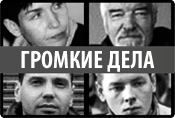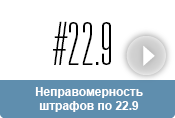Belarus is not ready for informational war with Russia
Events of recent months in Ukraine, and especially the Russian-Ukrainian conflict in the Crimea, demonstrated how “senseless and merciless” Russian propaganda can be.
.jpg)
Russian TV channels, most print and online media spur anti-Ukrainian hysteria. Experts suppose that in case the official Minsk has any problems with Russia, Belarusian information space might stay helpless before its Eastern neighbor.
Belarusian mass media: reserved coverage of events in Ukraine
Ukraine has been in all top news for the last four months already. Belarusian media also write pretty a lot about the neighboring country.
The media expert Pauliuk Bykouski remarks that, analyzing the situation for the overall four-month period, Belarusian mass media provided a relatively reserved assessment of the events.
“It is typical of both state-run and non-state mass media. But independent media wrote more articles and provided more diverse range of views on the Ukrainian issue,” said Mr Bykouski in an interview to BelaPAN.
But, if we look at different periods, he says, we can notice that state media had “tides and flows that must be connected with how Belarusian government changed its estimates of the benefit from picking this or that side.”
“Thus, we can notice that some events were presented on state TV channels and in the feed of the agency BelTA from the point of view of the Kremlin and the acting authorities in Simferopol. However, on other days publications appeared presenting events in the Crimea as a Russian aggression. Both views are represented, for example, on the website of BelTA, but on different days”.
TV channels offered more cautious views as compared with news in Russian and Ukrainian media. But here the expert underlines that Belarusian viewers rather follow the Russian informational filed, so even these cautious reports and preterition played in favor of the Russian standing.
“Direct lies were not broadcast, but if there were any statements they rather worked for the advantage of Russia,” said Pauliuk Bykouski.
Russian channels are filtered
Meantime, the expert thinks that Belarus is quite ready to protect its informational space from aggressive actions from outside.
“Belarusian authorities take certain measures in this regard,” says Mr Bykouski. “We can compare it with 1990s when Belarusian authorities had to just switch off Russian channels /…/ that criticized Alexander Lukashenko too often. Then, Belarusian viewers were simply aware that something was wrong because the channels were blocked. Today, there is no direct transmission of Russian TV channels to Belarus.”
The expert reminds that there are joint TV projects for which this or that state Belarusian TV channel is responsible, but news are presented in a recorded version.
“So there is always a possibility to cut out some parts. The time when it was done roughly has already gone. Today only a specialist is likely to notice some content changes as compared to the Russian version.”
As for other TV channels, Ukrainian TV channels were removed from cable transmission, which had been there for some time; some American TV channels are periodically switched off.
“I mean, they can be today and can disappear tomorrow. It happens under many pretexts: because of the license in the territory of Belarus, or because the provider failed to conclude another agreement with the rights holder. Certainly, a consumer cannot evaluate how truthful it is. But as for channels ratings, news channels are not in the lead. Consumers are more interested in entertaining content, which is presented in a bigger volume.”
Belarusian media landscape is incomparable with the Ukrainian one
According to Mr Bykouski, we should not compare the situation in the Belarusian and Ukrainian media markets. There are few owners of non-state media in Belarus: they are mostly in Minsk, in Brest region, and only a few in other regions.
“[In Ukraine] there are few state-run resources, but pretty many of those belonging to oligarchs; there are big and small private projects, regional projects. The picture is more diverse. Many such resources are politically colored and pick this or that side. This can be accounted for the region, sometimes it is a common view. There are resources which look like a quality mass medium, but sometimes they fall short of journalism principles and participate in informational wars.”
“If we compare, Ukraine is diverse, with diverse political climate and landscape in the regions, there are different media players. In Belarus such players are only a few, with few informational wars, but for several online resources (Charter’97, Belarus Partisan); others try to stick to journalism standards, and if they miss them, they are criticized at once.”
Mr Bykouski also remarked that Belarusian authorities have total control over TV airwaves and access to the Internet and can easily shut off resources when necessary, which is not the case with Ukraine.
The authorities view Russian propaganda as a lesser evil
Andrei Porotnikov, manager of the analytical project Belarus Security Blog, holds a different opinion that Belarus is not protected in case an informational war occurs similar to that one being waged against Ukraine.
“The Ukrainian media market is much more developed, more professional than ours. Respectively, there are more possibilities, in terms of quantity and quality, to resist, to withstand informational attacks than we have,” said Mr Porotnikov to BelaPAN. “We have no possibilities at all, except for such administrative steps as shutting down transmission, depriving of accreditation or direct censorship, when whole parts of programs are cut out. We have no other protecting mechanisms.”
However, cessation of broadcasting and censorship is not a solution to the problem, underlines the expert.
“Such measures are counterproductive for the simple reason that people would start thinking something is concealed from them and thus would search information in other places. It is not a problem in the age of the Internet.”
The expert says that for quite a long time he has observed “invasion of trolls with Russian registration” on Belarusian forums and websites of Belarusian media with commented materials.
“I was surprised to open the city website of Slonim. It turned out that there were several people indicating Moscow, Saint Petersburg or Yekaterinburg as their place of residence and who manage to write several hundred posts a year in a peculiar pro-Russian style,” said Mr Porotnikov.
He says that destructive work of this kind against Belarus “can be not as noticeable because it is not so large-scale and obvious, but the platform really exists. If they start an attack, our informational security will be in a sad situation.”
The expert sees a single possible outcome: the authorities must contribute to development of media sphere in the country, and to increase the number of professional journalists.
“All barriers and obstacles in media work should be removed, we should stimulate emergence of new mass media. The authorities should not just step back here, they should make several steps back,” said the expert.
Among measures necessary for the authorities, the expert enumerates the application principle of registering mass media, protecting journalists’ rights for receiving and distributing information. These are, by the way, measures recommended by the Belarusian Association of Journalists for quite a long time, though to no avail.
The expert thinks that liberalization in media sphere must lead to filling the market with quality journalism. “If journalism is of high quality, it can withstand such threats. Nobody is touched any longer by bans and Brezhnev-style official propaganda,” he emphasized.
Meantime, the expert thinks that although Belarusian authorities will make conclusions from the Russian-Ukrainian crisis, including the informational war, they will not proceed to liberalization in media sphere.
One can assume that in choosing between possible threats of informational war with Russia and threats from liberalizing the media sphere, Belarusian authorities view Russian propaganda as a lesser evil.
“They are sure that they have their chopper switch and they can turn it just in case. But there is always a cure,” said Mr Porotnikov.





